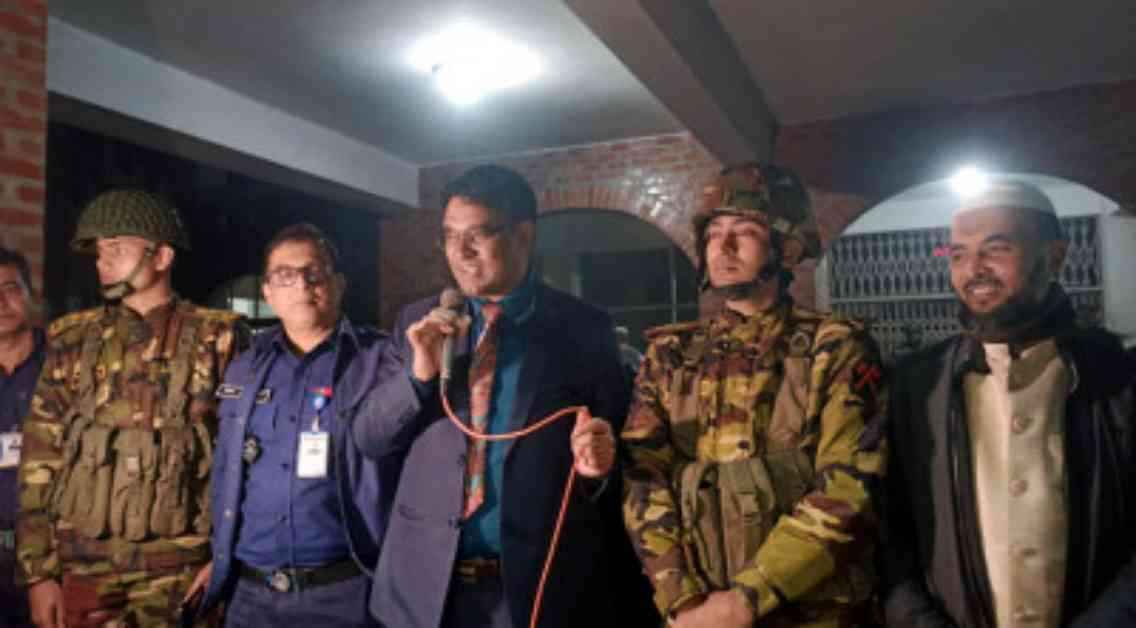Four Judges Face Suspension After Seven-Hour Court Disruption
In a dramatic turn of events following a seven-hour protest against the suspension of four judges in Panchagarh district court, District Magistrate Sabit Ali announced the decision to remove the judges and inform the government of their removal.
The disruption began on Sunday afternoon, as students rallied in protest against alleged corruption, bribery, malpractice, and irregularities among the district and sessions judges of Panchagarh district court and the Chief Judicial Magistrate Court. The students prevented court proceedings and initiated a highway blockade.
Later that night at 8 PM, District Magistrate Sabit Ali arrived at the court premises and announced the suspension of the four judges, including Senior District and Sessions Judge Golam Faruk, Chief Judicial Magistrate Mehedi Hasan Mandal, Senior Judicial Magistrate Ashrafujjaman, and Judicial Magistrate Abu Hena Siddiqui.
The students claimed that the judges had engaged in bribery, malpractice, and nepotism. They expressed dissatisfaction with the lack of response from the administration regarding their grievances, leading to the protest. Despite a 24-hour deadline for the judges’ removal, the decision was not implemented, prompting the students to intensify their protest by barricading the court premises and blocking the highway.
With the situation escalating, additional police and military forces were deployed to restore order. However, due to the lack of a decision regarding the judges, the students continued their protest, leading to a face-off with the Chief Judicial Magistrate Court.
By 7 AM, the district’s Jamaat-e-Islami leader, Professor Ikbal Hossain, engaged in a dialogue with a legal advisor regarding the suspension of the judges. Subsequently, District Magistrate Sabit Ali addressed the protesters, assuring them that the government required some time to make a decision. He mentioned that the matter would be escalated to the Chief Justice’s office for a final ruling.
Following the District Magistrate’s announcement, the protesters dispersed from the court premises, expressing their concerns about the lack of legal action taken against the judges. They emphasized their commitment to holding the corrupt judges accountable.
Fazle Rabbi, a coordinator for the students’ protest against corruption, highlighted the necessity of their demonstration against the unethical judges. He referenced legal advisors who confirmed that the judges would no longer preside over any court cases and would face disciplinary action.
The events in Panchagarh reflect a growing trend of public outrage against corruption and malpractice within the judiciary. The students’ persistence in demanding accountability from those in positions of power serves as a reminder of the importance of transparency and integrity in the legal system.



























